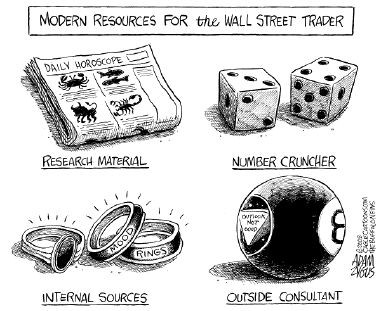Century Marks

Stubborn belief: Twenty years ago, Gerald Britt, a pastor in Dallas, lost an 11-year-old son to scleroderma. Last year, another son was murdered. The week after that son’s funeral, Britt found out that he has prostrate cancer. He has concluded that there is no theological explanation sufficient to make him understand the losses he’s experienced. Yet, he says, “I choose to stubbornly believe that God is good. The book of Psalms is punctuated throughout with these words: ‘The Lord is good,’ and there are no qualifiers. . . . I choose to stubbornly cling to that unqualified goodness—even when things that happen to me are not good” (DallasNews.com, September 25).
Kant matters: Literary scholar Stanley Fish is famous for questioning whether reading the great books enobles humans. To a point, Earl Shorris agrees: “Neither Marx nor Jesus has been able to prevent the failures of human civilization,” he says. “Why should we expect more of the great books?” Yet the great books can make a difference, he argues, pointing to a peasant woman in a great books reading program in Mexico who says that since she read Kant she no longer allows her husband to beat her. “I am not a means,” she says, drawing on what she learned from Kant. “I am an end. And because I am an end I have dignity” (Common Review, Fall).
Self-love: Researchers have tracked college students’ scores on the Narcissistic Personality Inventory test over the past 24 years. They’ve concluded that students are increasingly addicted to self-love throughout the U.S., but not in California. California scores are lower because Asian American students, who account for half of the freshman class on some California campuses, score considerably lower than other groups on measures having to do with individualism and narcissism. The researchers believe that the rise in self-love overall is the result of programs in primary and secondary schools aimed at boosting self-esteem: “‘I am special’ teaches narcissism rather than self-esteem,” they conclude (Wilson Quarterly, Autumn).
Watchdogs: Ellen Miller, cofounder of the Sunlight Foundation, hopes that the next U.S. president will use features of the Internet to make government more transparent. Already there are Web sites that cast light on the machinations of government: earmarkwatch.org is a database that tracks kickbacks and boondoggles; opencongress.org summarizes bills in simple language and tracks legislators’ voting records; and punchclockmap.sunlightprojects.org tracks the schedules of members of Congress. Miller envisions other possibilities, such as a site like Wikipedia where proposed bills can be uploaded and citizens can suggest their own revisions before the bills go to a vote; a site that links politicians with donors and legislation, showing how government really works; and live-cam coverage of government meetings posted on YouTube (Wired, October).
Climate change by state: While the federal government dithers over global warming, some states and municipalities are taking the lead in reducing carbon emissions. For instance, at least 26 states have some standards that require utility companies to develop a portion of their electricity from renewable sources in the next ten to 20 years. States and cities can succeed where the federal government has failed because they exhibit less political rancor. States also are closer to feeling the impact of global warming. Charlie Crist, Florida’s Republican governor, has gotten on board with the cause because of the impact that more intense hurricane seasons have had on the state and on insurance rates. Nevertheless, at some point a federal response is needed (Audubon, September-October).
Heavens declare: Scientists met this past summer in Zielona Gora, Poland, to pay tribute to the work of German mathematician and astronomer Johannes Kepler (1571-1630), who fathomed the anatomy of the eye, developed the science of optics and figured out the course of the planets. At the conference in Poland, Owen Gingerich of Harvard University took note of Kepler’s Christian faith. Kepler was a devout Lutheran and at one time had planned to enter the ministry. Kepler gave God the credit for leading him to his discoveries in astronomy (Discover, November).
Leaving church: Poland’s Catholic Bishops’ Conference has for the first time issued guidelines for dealing with Catholics who wish to renounce their baptism and leave the church. “The duty to stay in communion with the church is violated in the most radical way by a Catholic who carries out an act of separation from the church community, either as an apostate who totally rejects the Christian faith, or as a schismatic who refuses to recognize the supremacy of the bishop of Rome,” the bishops said. The procedures for leaving the church include putting the intention in writing and getting as witnesses to it a parish priest and two other adults. The priest is supposed to inform a defector that the consequences of leaving are being barred from the sacraments and Catholic marriage and burial (ENI).
Broadsided by religion: Gain Peace, an Islamic organization, has spent nearly $30,000 placing signs about Islam on the sides of buses in the city of Chicago. The signs are meant to dispel misconceptions about Islam and to invite people to the group’s Web site or to call a number to speak with a Muslim. The organization concluded that the campaign was a success: it reports eight conversions, nearly 400 calls and about 75,000 hits on the Web site in the first week. Similar campaigns have taken place in other cities (Chicago Tribune, October 15).
Cuddle and preach? Some people allege that Mattel’s Little Mommy Cuddle N’ Coo doll emits the words “Islam is the light.” The toy manufacturer says that the sound emitted resembles the word night, right or light. The company promises to eliminate the misleading sound in future production of the doll (UPI).




